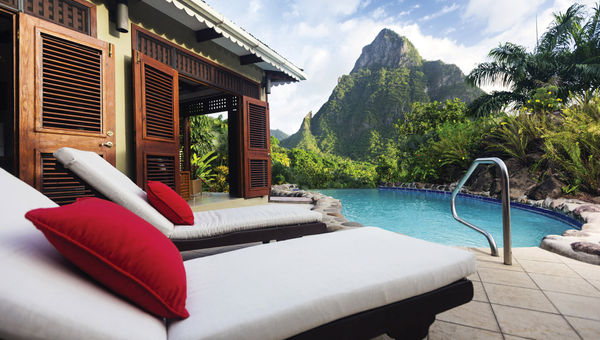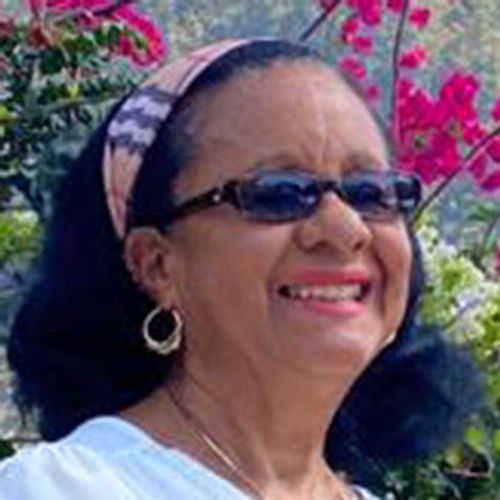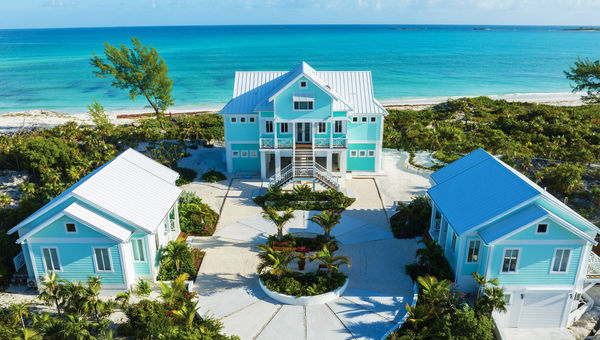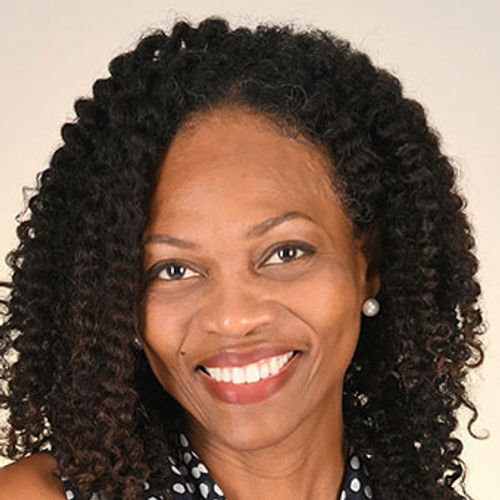On most Caribbean islands, tourism drives the local economy. But not everyone has benefitted. Hundreds of years of enslaved labor in the Caribbean, followed by years of Black people being shut out of access to economic opportunities, has kept Black hotel ownership in the region low. Fortunately, things are changing, and Black-owned resorts have become some of the most successful properties in the Caribbean.
With June designated as Caribbean Heritage Month, I reached out to three Black hotel owners to talk about hospitality, family legacies and what hotel ownership means to local communities.
Family businesses

Janelle Hopkin
Black hotel ownership in the Caribbean is often a family affair, and Grenada's Spice Island Resort, built in 1961, has been associated with the Hopkin family since the late 1960s. Janelle Hopkin's father, the late Royston Hopkin, became a majority shareholder in 1987, and the property has remained in the family.
"Our brand culture is rooted in the philosophy of connection through service," said Hopkin, the resort's president and managing director. "We offer outstanding service, authentic cuisine and experiences incorporating our local Grenadian culture. It's the ultimate Caribbean escape, where guests can reset, recharge and relax."
The all-inclusive property on Grand Anse Beach features 64 luxury beach and pool suites. Its top-notch service has earned it a AAA Five Diamond rating and a legion of loyal guests.
"The Spice Island Beach Resort brand has been carefully nurtured by my father, who was a Grenadian hotelier and a towering force in the industry," Hopkin said. "My task, with the assistance of my family, is to continue to build on my late father's vision while carefully evolving the hotel's iconic brand to meet the needs of both its current and new guests."

The Orchid Villa pool at St. Lucia's Stonefield Villa Resort, a former cacao plantation owned and operated by the Brown family. Photo Credit: Courtesy of Stonefield Villa Resort
St. Lucia's Stonefield Villa Resort shares a similar family story. The property is owned by Anista Brown, a St. Lucian who was born and raised in Soufriere, where the resort is located.

Anista Brown
Cybelle Brown, Anista's daughter and the managing director of the resort, said part of St. Lucia's allure are its calming energy and natural beauty, which are also evident at the Stonefield.
"Nestled beneath Petit Piton, our property has stunning and awe-inspiring vistas, and every villa showcases panoramic views of the Pitons and the ocean," Cybelle Brown said. "We also have organic fruit and vegetable gardens that supply the restaurant, ensuring a genuine farm-to-table experience."
The property is a former working cocoa plantation where Brown's grandfather was an employee. Brown currently oversees sales and marketing while her mother runs the day-to-day operations.
"My parents purchased the property in 1973 and continued to operate it as a working cocoa plantation," Brown said. "Our family of seven lived in the main house, which is now the resort's events center. In 1998, we built four villas and a restaurant and officially opened Stonefield Villa Resort. Since then, we've developed the resort into a 17-villa property."

The Osprey in the Bahamas is owned by Daphne Delaney and her husband, John. Photo Credit: Courtesy of The Osprey
In contrast to these extended-family connections, the Osprey, a boutique, residential-style resort on Great Harbor Cay in the Bahamas, was started by current owners Daphne Delaney and her husband, John.
The hotel boasts 400 feet of direct beachfront, part of a seven-mile stretch of pristine beach. Accommodations include a three-bedroom, 2,200-square-foot villa; a 1,000-square-foot cottage; two 500-square-foot suites with kitchenettes and lounge areas; and a private guest bedroom with a commanding ocean view.

Daphne Delaney
Daphne Delaney designed it based on her family's extensive travels and stays in top-tier hotel properties.
"When we created the Osprey, we combined our love for the ocean and the natural environment with our desire for comfort no matter how rustic the location," she said. "Guests can expect an exclusive, highly personalized, luxurious stay on one of the Bahamas' most beautiful shores."
Radiating benefits
The increase in Black-owned hotels is significant for owners and their communities; the properties create generational wealth and also serve as a model for other local business owners.
"Representation is always important," Hopkin said. "When local entrepreneurs can build a successful hotel brand that can compete on a global scale, it hopefully encourages the younger generation of Caribbean youth to strive for greatness on their chosen paths and to believe that there is no limit to what they can achieve."
Beyond providing economic power to locals and creating opportunities for entrepreneurship and employment, Black-owned hotels offer guests a unique cultural perspective.
"We showcase the rich history, traditions and hospitality of the Black Caribbean community, providing a more authentic and diverse travel experience," Brown said. "Additionally, Black-owned hotels help to challenge stereotypes within the tourism industry. By highlighting the achievements and contributions of Black entrepreneurs in the hospitality sector, these hotels play a role in promoting representation and equality."
The growth of Black hotel ownership in the Caribbean means business owners can play a larger part in their island's tourism industry, which benefits both the current owners and the next generation.
"The Caribbean region, including the Bahamas, comprises mostly people of color, so our businesses are key to amassing the economic strength to advance the region and secure global recognition and influence," Delaney said. "Our heritage is filled with families of color persevering through hardship, overcoming challenging circumstances and achieving success through determination. We honor our history by building on that legacy."